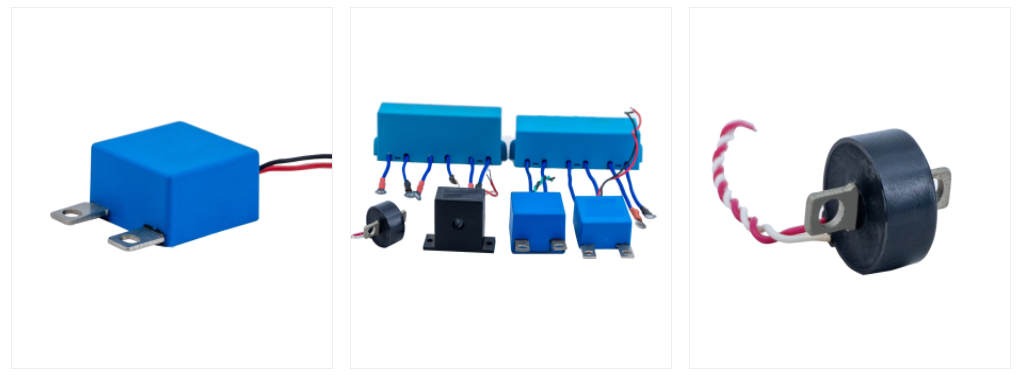- All
- Product Name
- Product Keyword
- Product Model
- Product Summary
- Product Description
- Multi Field Search
A Current Transformer (CT) for electric meters is a type of instrument transformer designed specifically for accurate energy measurement. Its principle is based on electromagnetic induction, just like standard CTs. The primary conductor (the main power line) passes through the transformer's core, acting as a single-turn primary winding. The alternating current in this conductor creates a changing magnetic field, which induces a proportionally smaller, isolated current in the many turns of the secondary winding. This secondary current is a precise, scaled-down replica of the primary current, sent directly to the electric meter for calculation.

Product Features
1. High Accuracy: Metering CTs are built with high-precision cores and windings to ensure minimal error (e.g., Class 0.5, 1). This accuracy is crucial for correct billing and revenue protection.
2. Safety and Isolation: They provide complete electrical isolation between the high-voltage power line and the low-voltage meter, protecting both the equipment and personnel.
3. Standardized Output: They are designed to deliver a standardized secondary current (typically 5A or 1A at rated primary current), which is what the electricity meter is calibrated to accept.
Common Applications
Their primary application is, as the name implies, in energy (kWh) metering. This includes:
1. Residential and commercial electricity meters installed by utility companies.
2. Sub-metering for tenants in apartment buildings or departments in large facilities.
3. Industrial power monitoring to track energy consumption of large machinery.